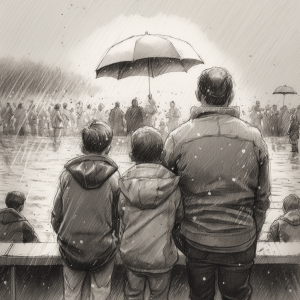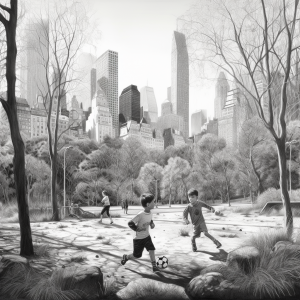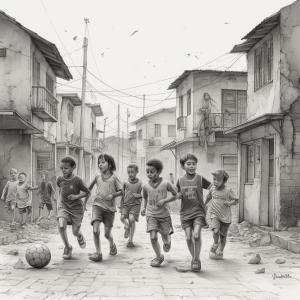Some of the scientific discoveries made over the years have been so simple, yet so powerful. Having studied chemistry, physics and biology at University level (preens) one of the pioneers in science for me was Isaac Newton.
“An object in motion will stay in motion, and an object at rest will stay at rest, unless acted on by an outside force”.
Believe it or not, that’s Newton’s first Law of Motion. Read the above passage again, how simple is the theory. If you repeated this statement to any person today they would probably roll their eyes thinking durr.
So how do we put a spin on this?
How do we relate this to soccer?
Force or forces in the language of Physics simply means to influence a free body to undergo acceleration or to cause movement. If we want to get a little more technical, force can be described as the push or pull that can cause an object with mass to change velocity. Before I turn this into a physics lesson I want to add one last thing, an applied force has both magnitude and direction.
Are you still scratching your head?
Although science and physics like to quantify things and construct large equations that look to bamboozle (not sure if it’s a word) half the population, their principles and theories can be related to everything. Not only can they be related, they are lined with little gems if you can read between the lines.
Isaac Newton talks about force in terms of acceleration, mass, velocity and the ever present force of gravity. We’re going to talk about a different force, the force of influence.
Influence occurs when a player’s thoughts or actions are affected by other people. Other people, as always, can range from your coach, parents, teammates, supporters or the stranger you meet randomly.
Could the environment, club or the infamous silver spoon affect player’s behavior? What about the force that most parents or coaches use today?
I would like to give birth to a new theory and call it “The Donkey Effect”.
The name does sound offensive but hear me out.
Old school belief, coaching and parenting suggests that rewarding an activity will get you more of it.
Everyone agree? Don’t be scared, I’m not going to call you a donkey.
A different angle would be punishing an activity will get you less of it, sounds simple right?
Think about a donkey for a moment. Not the most obedient animal by any stretch of the imagination. Dangle a few carrots in front of the donkey and he will do what ever you want. The donkey seems to obey with the promise of a reward.
What happens if we can’t get the donkey to move forward, no worries, we have the infamous stick ready for a whipping. Punishment will ensure that the donkey will think twice about misbehaving.
Carrots and the stick are both forces that look to influence. Most coaches use the carrots and stick method (metaphorically speaking of course) to discipline their players. What they don’t understand is this; the “donkey effect” of carrots and the stick promotes bad behavior, creates addictions and encourages short-term thinking at the expense of future success.
Being called a donkey around the green pastures is not a good thing, hence the reference to a donkey, I know, very scientific on my behalf.
So what’s the problem with the carrots or the reward system? Offering bribes or rewards to young players serves them poorly.
Do you know why?
When clubs, coaches and even parents focus on the short-term peace and opt for controlling player’s behavior, they do enormous long-term damage. Don’t just take my word for it.
“Research and 128 experiments on rewards concluded that tangible rewards tend to have a substantial negative effect on motivation.”
Money, presents and trophies can provide an enormous amount of pleasure at first, but the feeling soon diminishes. I have a cabinet full of trophies that serve no purpose but to collect dust, big deal.
The problem lies in the recipient wanting more trophies, more presents and larger amounts of money. Think about that before you bribe your kids to go to training. Before you know it, the existing reward will no longer suffice allowing the status quo to sweep your child right before your very eyes.
Basically the short-term reward destroys the long-term learning and development. Kids will resemble addicts that want their fix regardless of the eventual harm.
The problem with making a reward the only destination that matters is that some players will choose the quickest route. Why do you think so many athletes, not just soccer players, inject themselves with steroids? Are they chasing the carrot and forgetting about the bigger picture?
What about the stick? Step out of line and the system punishes you. Parents and coaches are ready to put you back in line and reinforce the status quo that claims over 80% of children playing the game.
Although I’ve made up the “Donkey Effect” theory, it has a severe strangle hold on kid’s soccer.
Rewards or punishment will not turn your kids into soccer players, so please don’t become a part of the status quo.
“May the winds of destiny blow you to the stars.”



its very good article i thinke all Children love this we need more and more
this is a great article, its much harder to show love and enthusiasm and hope it catches on then to just promise a reward that is easy to give.
I really like the analogy and it does stand true.
The most disappointing thing is that this technique of reward and punishment is used so frequently and easily.
You have written a great and useful blog post on kids soccer. Thanks for your blends and inclusion of facts of some great international scientists and personalities.
rewards don’t have to be tangible. a reward is just giving someone something they like. kids like to play world cup- an intangible reward. kids can be rewarded with privilleges such as playing games they like when they behave in a desirable way. rewards (tangible or not) do not undermine intrinsic motivation if they are seen as a source of information about their ability, i.e. that they have been successful. tangible rewards hurt motivation only when children see the object as the sole purpose of playing.